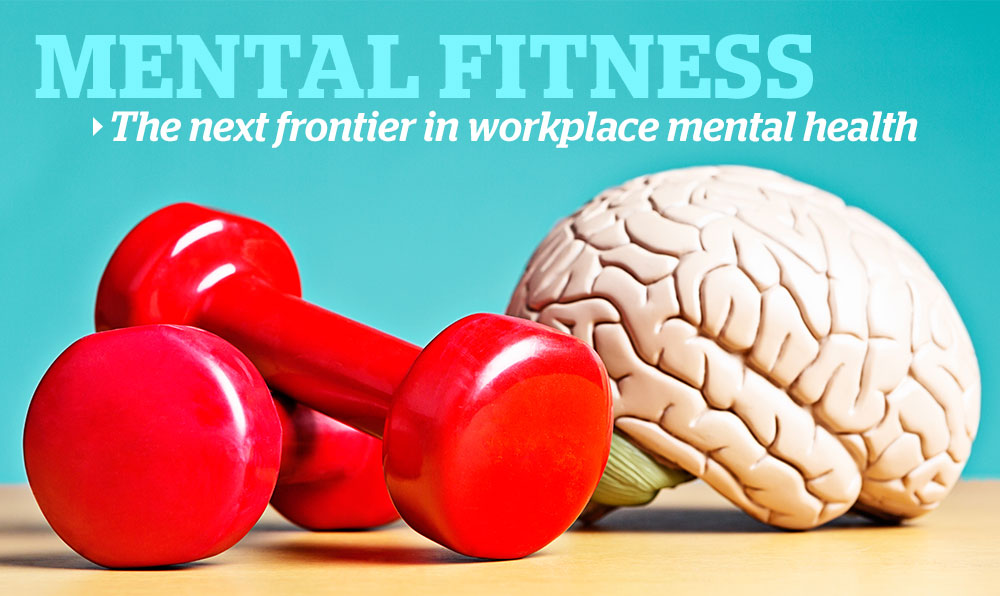

Columns/Blogs
Features
Mental Health
How help-seeking behaviours can assist your mental fitness journey
By Bill Howatt

EDITOR’S NOTE: ‘Mental Fitness: The next frontier in workplace mental health’ is a weekly series, in partnership with Dr. Bill Howatt of Howatt HR Consulting in Ottawa. This series takes a deeper look at mental fitness — an approach to prevent mental harm and promote mental health.
Have you had a time in your life when you felt overwhelmed and were not sure where or how to ask for emotional support? If you answer yes, you are not alone.
Many of us have learned that it is not OK to ask for emotional support in times of need. Why? Because of this thing called stigma.
Somehow in our culture — especially in the world of work — when we are having a difficult time coping emotionally, asking for help or showing stress has been viewed as a sign of weakness.
Advertisement
I worked with some challenging personalities on Wall Street for 12 years. When I started, I was told to ensure the hiring process I was developing did not hire people who get stressed.
Though I knew this was impossible, it was clearly an expectation that employees in this workplace were not to show stress. If they did, this was considered a negative element and a sign of weakness.
Overcoming self-stigma
Of the three types of stigma (self, peer and organization) one of the most challenging to overcome is self-stigma.
This is often the reason people do not engage in help-seeking behaviours. It is estimated globally that nearly 70 per cent of people with a mental illness never get treatment.
How would you answer the following questions?
- How did we learn it is shameful to ask for help?
- How did we learn that we’re supposed to be invincible?
- How did we learn that when we feel scared, worried or down, asking for help from someone is a sign of weakness?
Before we can add the microskills of engaging in help-seeking behaviours, we must tame self-stigma.
Perspective can help tame its mental tricks. We all have a high level of dependency on our environment to provide the supports we need for our quality of life.
We are dependent on the power company for electricity to keep our homes functioning at the levels we are used to so we would not think twice about calling the company if our power were out. Why? Because we need power.
If you were to trip when walking on the street and break your arm, you would seek medical attention to fix it. Why? Because you need it.
Towards good mental health
So here is the deal: you need good mental health to enjoy your life.
There may be nothing more important, but because of stigma, many suffer in silence.
As one who has lived his entire life with a mental illness, I have learned that no one cares that I have a mental health issue or if I need support. When I say care, I mean judge. That is what stigma is: fear of being judged.
I have learned that I am not perfect. I have many challenging moments, but I also have many good ones. Talking about my mental health has helped me realize that I am not alone. We are all trying the best we can.
Turning to help-seeking behaviours is accepting that when one feels stuck, concerned, addicted or suicidal, asking for help is normal — no different than calling the power company or getting a broken arm fixed.
These behaviours are also helpful for prevention, such as venting concerns with a trusted authentic connection to provide context and reframe a situation you are finding difficult to cope with.
Make your help-seeking plan
- Tame stigma: If you needed emotional help, would you feel comfortable asking for it? This is a big step that is often forgotten.
Giving someone an employee and family assistance program number to call in time of need is of little use if they do not feel comfortable calling it. Giving yourself permission to ask for emotional support may require some learning, as well as building up confidence to self-advocate.
- Build a help-seeking support plan: Where would you go if you needed emotional support? The wrong time to prepare is when you need help.
Shopping for a psychologist and meeting them to discuss mental health while in a calm state is much more empowering than looking for one in a crisis.
Determine the types of emotional support you would like to ensure are in place and then build your help-seeking plan. Keep in mind that a help-seeking plan can also be preventive and support mental health.
Following are examples of supports to include in your plan:
- Authentic connections — people you feel safe with to share how you feel and who care about your well-being
- Peer supports — mentors and peers who are interested in your success and well-being
- Coach — a person you hire who helps you navigate your day-to-day challenges, to help you set personal and professional goals and hold you accountable
- Spiritual support — a person who supports your spiritual journey
- Groups — support groups such as Weight Watchers you join, whose mission is aligned to an area of your life you would like to improve
- Online supports — credible resources like Togetherall that can facilitate confidential and safe emotional support
- Mental health apps that facilitate social connections — like Hugr Authentic Connections, designed to help people feel connected
- Mental health professional — counsellor, social worker or psychologist
- Mental health support resources — programs your employer provides as well as local community mental health and emotional support resources. Also, consider addictive disorder support resources
- Crisis supports — help such as a crisis line you can call for immediate emotional support if you feel overwhelmed and in crisis
- Medical doctor — a doctor you feel safe talking to about your mental health as well as your physical health.
 Dr. Bill Howatt is the Ottawa-based president of Howatt HR Consulting and the former Chief of Research and Workforce Productivity at The Conference Board of Canada.
Dr. Bill Howatt is the Ottawa-based president of Howatt HR Consulting and the former Chief of Research and Workforce Productivity at The Conference Board of Canada.
If there is a particular microskill or topic you would like to see Dr. Howatt write on that supports employees’ mental health in the workplace, please send your request to Talent Canada editor Marcel Vander Wier.
Print this page